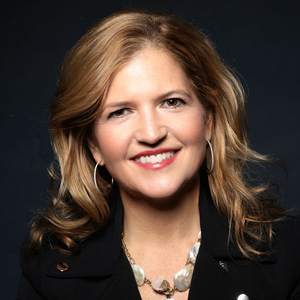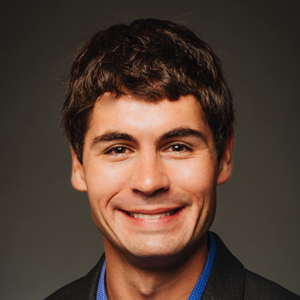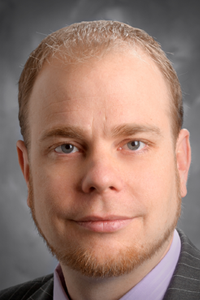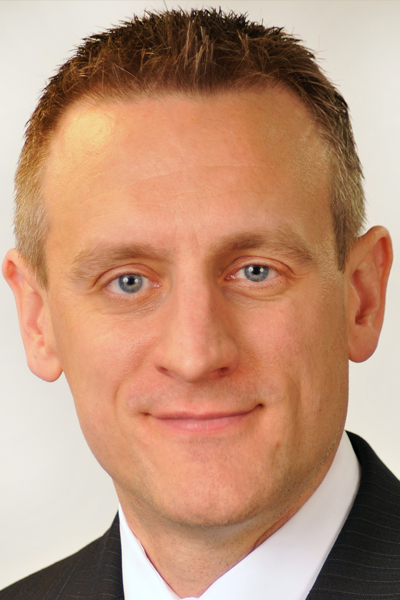

What are the majors doing independently or with their affiliates to capitalize on the SmallSat market? Airbus, Boeing, General Dynamics, Hughes, Lockheed Martin, Northrop Grumman, Raytheon, SSL and Thales Alenia are known for the scale of the systems they implement. How does each approach the small satellite market, and how does the scale of their organizations affect that approach?
 Debra Facktor
Debra Facktor
Debra Facktor is an executive-level aerospace and defense strategist, guiding new and established companies through unprecedented industry changes. For over 30 years, her leadership and strategic vision have enhanced business growth and fostered new paradigms for industry collaboration. A business leader and systems thinker, she is known for her ability to see opportunity in change and for developing proactive plans that anticipate and leverage evolving market landscapes. With an emphasis on teamwork, mentoring, diversity and inclusion, she brings people and ideas together to make a positive impact.
Debra’s industry experience extends from government program support and international relations, to executive leadership in start-ups, academia, and in a public company.
Through January 2020, Debra was Vice President and General Manager of Strategic Operations for Ball Aerospace, where she elevated the company’s profile across multiple stakeholder communities and expanded its strategic capabilities in defense, civil and commercial sectors. Debra represented Ball Aerospace as its senior executive in the Washington, DC area, where she led the company’s Washington Operations, Marketing & Communications, and Strategic Development portfolios. She transformed the strategic planning process and implemented an enterprise-wide integrated strategic plan, leading to tremendous and sustainable multi-sector growth.
Prior to joining Ball in January 2013, Debra served as the president of DFL Space LLC, an aerospace consulting firm focused on developing innovative business strategies for its clients. As an industry professor at Stevens Institute of Technology in Hoboken, NJ, she also led its Masters of Engineering in Technical Leadership program and served as Director of Strategic Programs for the Systems Engineering Research Center (SERC). She was Principal Investigator on the SERC research project “Expedited Systems Engineering for Rapid Capability and Urgent Needs,” sponsored by the U.S. Air Force.
Her extensive business experience includes serving as president and an owner of AirLaunch LLC, a small business that won funding from the Defense Advanced Research Projects Agency (DARPA) and the U.S. Air Force to develop an operationally responsive small launch vehicle. She served as vice president of Business Development and Strategic Planning for Kistler Aerospace Corporation, which raised over $600M in private capital to develop a reusable launch vehicle for commercial markets and laid the groundwork for commercial resupply of the International Space Station. Earlier in her career, she was chief of Moscow Operations for ANSER’s Center for International Aerospace Cooperation.
Among other distinctions, Debra was honored with the University of Michigan 2014 Alumni Merit Award for Aerospace Engineering and as the Women in Aerospace (WIA) Most Outstanding Member for 2012. She currently serves on the industrial advisory board of the University of Michigan Aerospace Engineering Department, the advisory committee of the Intelligence and National Security Alliance (INSA), as a board member and treasurer of the Future Space Leaders Foundation (FSLF), and as a mentor for the Brooke Owens Fellowship Program. She is founding president of the WIA Foundation, former chair of the board of WIA, former board member of the American Astronautical Society (AAS), and former appointed member of the FAA’s Commercial Space Transportation Advisory Committee (COMSTAC). Debra is a fellow of the American Institute of Aeronautics and Astronautics (AIAA), a fellow of the AAS, an Academician of the International Academy of Astronautics (IAA), and a member of the International Women’s Forum. She holds both a B.S. and M.S. in Aerospace Engineering from the University of Michigan and is an alumna of the International Space University summer session program in Space Policy and Law.
 Jordan Bletscher
Jordan Bletscher
Jordan Bletscher is the Chief Strategist for Boeing Space & Launch. He is responsible for integrating market and investment strategies across the full range of Boeing’s space portfolio. Prior to his current role, Jordan was the lead strategist for Boeing Phantom Works Space, defining technology and growth strategies for government and commercial small satellite systems.
 Erik Daehler
Erik Daehler
Erik Daehler is Director of Commercial Business Development for the Lockheed Martin Corporation. In this capacity, he directs business development for commercial communication and remote sensing programs, delivering innovative, winning solutions to Lockheed Martin’s commercial and international customers.
He is responsible for the development of product offerings, technology solutions, satellite design and system architectures for commercial programs. In this role, Mr. Daehler leads a team of capture managers, design engineers, system architects as well as finance and supplier management team members to deliver proposals to LM customers.
Prior to joining Lockheed Martin, Mr. Daehler was the Director of Product Innovation for Boeing’s Network and Space Systems, where he led the development of all new satellite platforms for Boeing’s Advanced Network and Space Systems, including the first of a kind 702 SP all-electric, dual-stacked satellite and the 502 Phoenix remote sensing satellite product line.
Mr. Daehler has a strong background in optical physics with broad applications in communication and space remote sensing missions. He has used this mission experience to shape the strategy for new technology development in the company. Mr. Daehler led all research and development for Boeing’s unmanned satellite systems, worked as a Chief System Architect and Systems Engineering Manager on large-scale satellite and network systems for commercial and government customers.
Mr. Daehler joined Lockheed Martin at NASA’s John C. Stennis Space Center in 2000 where he performed radiometric calibrations of space and aircraft based multispectral and hyperspectral earth observation systems. In 2002, he transitioned to Boeing to develop next-generation space systems including the X-37B reusable spaceplane. In 2016, Mr. Daehler returned to Lockheed Martin to help grow the commercial communications and remote sensing business.
Mr. Daehler was educated in Europe at the Technical University of Delft in the Netherlands where he received his Master’s degree in Space Systems Engineering. He also received a Bachelor of Arts degree in Physics from The Colorado College in 1998. He is married and has two children.
 Steve Good
Steve Good
Steve Good is Vice President, Business Development North America for Thales Alenia Space, the joint venture between Thales and Leonardo. In this role, he leads strategic business development efforts for the Thales Alenia Space telecom, observation, exploration, and navigation product suites that connect anyone or anything, everywhere, observe our planet and help optimize the use of our planet’s resources. Good has held senior management, marketing, product management and engineering positions across the satellite communications value chain with Comtech EF Data, Intelsat, Verestar, Viacast and Hughes Network Systems. Prior to joining Thales Alenia Space, he held the roles of Senior Vice President, Enterprise, Comtech EF Data and Vice President, Network Services at Intelsat. He earned a BS in Electrical Engineering from Penn State University, an MS in Electrical Engineering from Johns Hopkins University, an MBA from the University of Maryland and an MS in Computer Engineering from Virginia Polytechnic Institute.
 Jason Kim
Jason Kim
Jason Kim is director of Strategy and Business Development, Raytheon Space Systems, a mission area within Raytheon’s Space and Airborne Systems business. He is responsible for driving strategic growth, capture, customer relationships, and functional operations across the space business. Kim has an extensive background in advancing autonomous systems. This includes his tenure in the United States Air Force’s acquisition of Unmanned Aerial Vehicles such as Global Hawk and Predator, as well as growing acquisition and development of first-of-its-kind classified and unclassified space systems.
Prior to Raytheon, Kim was a senior leader at Northrop Grumman Corporation and Millennium Space Systems, A Boeing Company, with progressively increasing levels of responsibility. He has a breadth of experience in executive management, program management, systems engineering, prototyping, testing and operations of defense systems. Kim earned a bachelor’s degree in electrical engineering and a master’s degree in business administration from the University of California, Los Angeles, and a master’s degree in electrical engineering from the Air Force Institute of Technology.
 Professor Andrew Kwas
Professor Andrew Kwas
Andy has 40 years with NGC/TRW working in advanced space programs specializing in space, advanced manufacturing, astrophysics projects and in-space manufacturing. As a NG Fellow, he supports NGC’s key space customers including NASA, AFRL, NRO, DARPA, Army/SMDC, Space RCO, USMC, and the Navy. He is considered one of the prominent additive manufacturing (AM) experts in the country and has produced numerous papers in AM, as well as advanced satellite technology, in-space manufacturing using advanced additive manufacturing techniques, unique logistics solutions, and miniaturization of spacecraft components. Andy brings his innovative approach to problems and has won several awards in innovation. His leadership of applying advanced space concepts to a transitional operational phase has been critical to NGC’s success.
Andy is an appointed Research Scholar at the University of New Mexico and is on their staff in the Electrical and Computing Engineering Department, supporting satellite and space research. He is on the Technical Advisory Boards for Virginia Tech, U of Michigan, Cornell, and U of New Mexico. Andy Kwas graduated from the University of Michigan in 1978 with two Bachelor degrees in Aerospace Engineering and Applied Mechanics, and received a Masters degree in 1980 from the University of Missouri Science and Technology in Astrophysics.